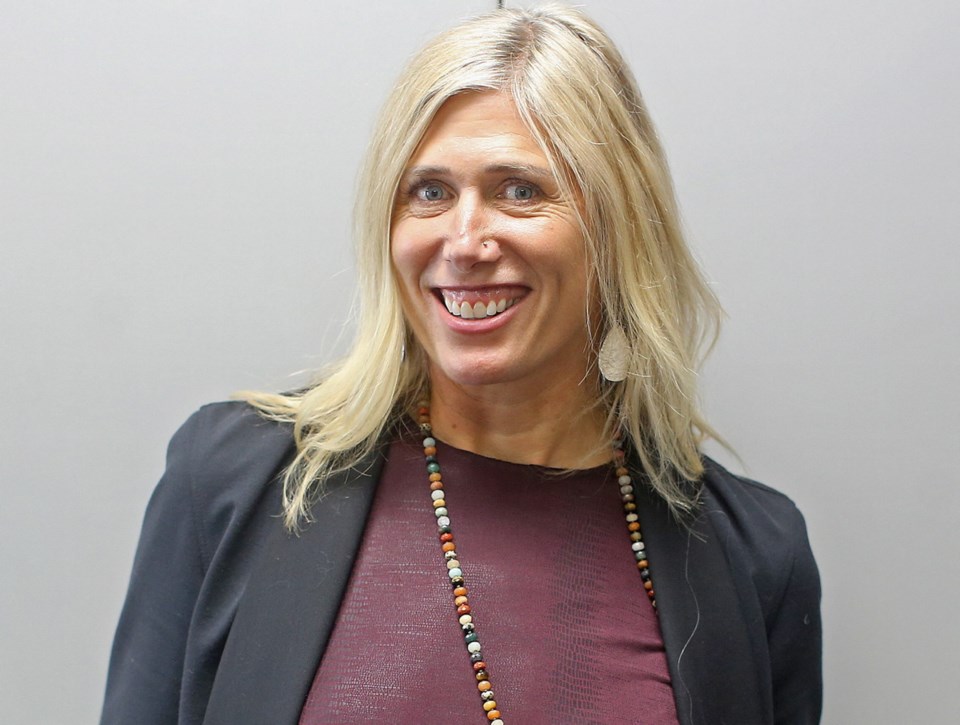It took Olympic rower Silken Laumann years to work up the courage to publicly share her struggle with depression, chronicled in her book, Unsinkable. Once she did, she saw the impact it had on others dealing with mental health issues and realized the power of a single story in breaking the stigma around a previously taboo topic.
“The impetus for writing the book was maybe my story wasn’t that unique, maybe my experiences were relatable and they could encourage and inspire somebody else in their personal story.”
That led Laumann, who lives in Victoria with her husband and four adult children, to launch an online platform called weareunsinkable.com, where Canadians can share their stories of trauma and personal healing as a way to inspire others.
“I wanted to create a story-sharing platform where Canadians could share their stories of what they’ve overcome, what helped, how they got through some of the toughest things that life has to offer,” Laumann said. “It could be a place of hope and help for other people who might be struggling.”
The online platform features stories from Margaret Trudeau, mother of Prime Minister Justin Trudeau, who speaks about her struggle with bipolar disorder, a woman who was born HIV-positive, a juror who suffered from post-traumatic stress disorder after hearing violent details in a criminal trial, and a 23-year-old counsellor who first attempted suicide at age 12.
It was important for Laumann that the site feature notable Canadians as well as ordinary people to show that mental health issues can affect anyone.
“I realized our lives are not that different, what we struggle with is really similar,” she said. “We struggle with our sense of identity, our place in the world, we struggle for meaning, for connection and ultimately for a sense of self-worth and self-love.”
The diversity of the stories, Laumann said, also send the message that a struggle with mental health illness is not a defining characteristic, but rather something that one can work their way through.
“It’s just one part of your story and there’s a way through it,” she said.
The website also features blog posts from mental-health counsellors, psychiatrists, meditation experts and addictions counsellors.
In a time where social media, cyberbullying and online trolls can be a source of anxiety and pain for many young people, Laumann hopes the website will be a “counterpoint,” with stories that give people hope and help.
“I think We Are Unsinkable can be a counterpoint to the negative stories of loss and suicide and mental illness,” she said.
Laumann’s Olympic victory remains a comeback story for the ages. As reigning world rowing champion, Laumann was seriously injured during a rowing accident that ripped the muscle off her shin bone only 10 weeks before the 1992 Summer Games in Barcelona. She underwent five operations and went on to win a bronze medal.
Laumann conquered the physical adversity caused by the accident, but she didn’t address her own mental-health crisis, rooted in a difficult childhood with a volatile mother, until she was in her 40s. She felt an unexplained rage toward her two young children and knew she needed to reach out for help.
“I really didn’t understand the point of going back into your past … and making peace with it. I thought the best strategy was to move on. But rage is a red flag that says: This is not OK and it’s time to do something about it,’ “ Laumann said.
Laumann recently checked in with her son after he witnessed the death of a man who threw himself in front of a car on the Pat Bay Highway on April 7. Her son was driving behind the car that struck the man, believed to be suffering from a mental-health crisis.
Laumann believes the stigma around mental illness is slowly lifting and people are more willing to reach out for help.
She said some still see mental-health crises as a weakness, but she hopes people will gain strength from the powerful stories on the online platform.
Through her memoir and inspirational speaking across the country, Laumann realized it takes some inner healing before you’re ready to share your story.
“You have to have some comfort in your own story. You have to be in the right place in your life and be very sure and strong in your own story.”



